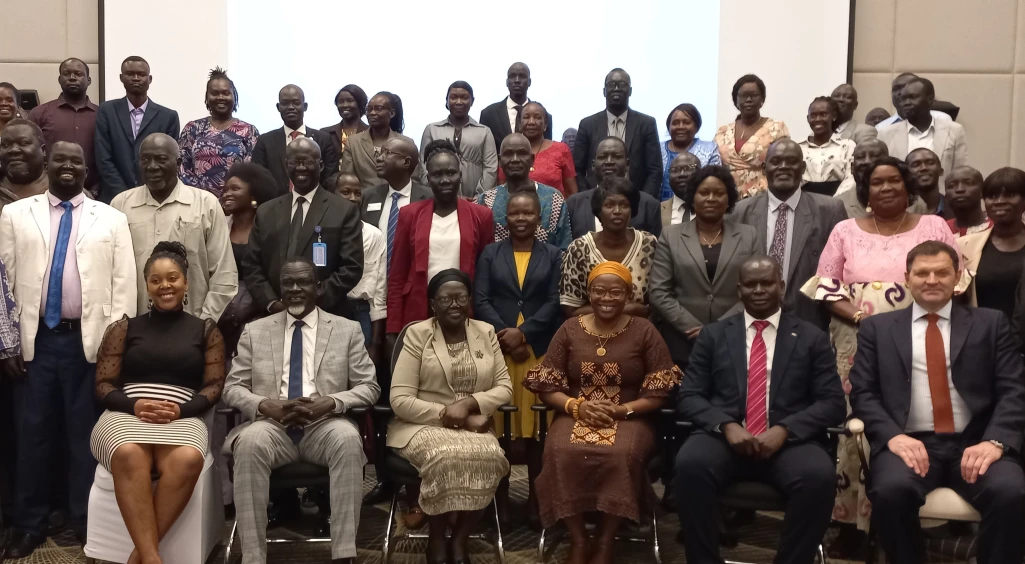
The UN Women
and the United Nations Mission in South Sudan (UNMISS) have reaffirmed their
dedication to assisting the country in the constitution-making process, with a
particular emphasis on enhancing local governance and promoting women's
complete participation.
The efforts
are part of the implementation of the 2018 revitalized peace agreement, which
envisions a more inclusive and representative legal framework for South Sudan.
The
Transitional Constitution of the Republic of South Sudan recognizes the diverse
needs and aspirations of all its people in shaping their future constitution.
Speaking at a
three-day workshop on building capacity for inclusive public participation in
the constitution-making process, Mr. Guy Bennet, chief of Political Affairs at
UNMISS, stated the importance of an inclusive and participatory approach to the
process.
“The
constitution-making process is a whole country and a whole population effort. I
emphasize the whole of population efforts,” Bennett said on Tuesday in Juba.
However, the
process continues to face challenges, particularly with regard to the
representation of women in political and governance institutions.
Despite the
country's efforts to achieve gender equality, the 35% quota for women's
representation at all levels of governance remains unfulfilled.
Women’s
participation in decision-making processes remains limited, with their views
often inadequately considered.
“There is a
critical need to enhance the capacity of women in the decision-making
processes,” Bennett emphasized.
“The views of
women at national and subnational levels are not yet effectively considered.
This is a challenge that we must continue to address.”
In a move to
address these issues, UNMISS has been working in partnership with the National
Constitutional Review Commission (NCRC) to provide capacity-building support
for the commission’s members.
This
initiative includes training on key issues such as gender equality and
federalism, which are vital for creating a balanced and inclusive constitution.
He expressed
the UN’s commitment to providing the technical assistance necessary to ensure
full, equal, meaningful, and safe participation in all phases of the legal
framework.
“As part of
its multi-year strategic vision, UNMISS remains committed to supporting South
Sudan’s transition to a peaceful, inclusive, and democratic future,” he
asserted.
In September,
the European Union ambassador to South Sudan urged the government to exhibit
political will in the process of permanent constitution-making, which would
enable the country to achieve the desired state of democracy, stability, and
peace.
The civil war
that erupted in 2013 caused a stall in the process, despite the formation of a
national constitutional review commission in 2012.
The parties
who did not sign the 2018 peace agreement suggested in August that they would
draft a permanent constitution in Nairobi and then bring it to the country for
adoption.
However,
citizens rejected this suggestion, with some arguing that it would be
informative to draft the constitution at home rather than abroad to include all
voices, while others concurred with the idea due to the unstable political
space.
With
continued support from international partners, the country is making strides
toward a constitution that truly reflects the aspirations of all its people.